Committees
Organizing Committee
 Dr. Agarwalla is an associate professor at the Institute of Physics, Bhubaneswar, India. His research interest is studying the properties of the fundamental particle called Neutrino. Prof. Agarwalla has made several contributions to neutrino physics. He has studied the role of high-energy astrophysical neutrinos detected by the IceCube detector at the South Pole to unravel new fundamental particles and interactions, probing energy and distance scales far exceeding those accessible in the laboratory. He has contributed significantly to identifying novel methods to determine the neutrino mass ordering, mixing angles, and CP-violation in the lepton sector, all pressing fundamental unsolved issues. Prof. Agarawalla is also actively involved in the India-based Neutrino Observatory (INO) project.
Dr. Agarwalla is an associate professor at the Institute of Physics, Bhubaneswar, India. His research interest is studying the properties of the fundamental particle called Neutrino. Prof. Agarwalla has made several contributions to neutrino physics. He has studied the role of high-energy astrophysical neutrinos detected by the IceCube detector at the South Pole to unravel new fundamental particles and interactions, probing energy and distance scales far exceeding those accessible in the laboratory. He has contributed significantly to identifying novel methods to determine the neutrino mass ordering, mixing angles, and CP-violation in the lepton sector, all pressing fundamental unsolved issues. Prof. Agarawalla is also actively involved in the India-based Neutrino Observatory (INO) project.
For more information, visit these links:
https://www.iopb.res.in/members/sanjib
https://scholar.google.com/citations?user=_QxdcIgAAAAJ&hl=en
https://inspirehep.net/authors/1039649
https://orcid.org/0000-0002-9714-8866
Email: sagarwalla@icecube.wisc.edu
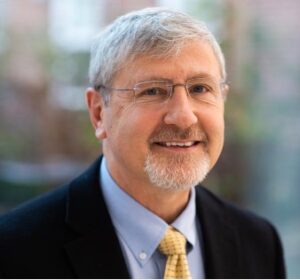 Dr. McDonough is a professor at the Department of Geology University of Maryland, USA. His research interest is in understanding the composition, structure, and evolution of the Earth and the other terrestrial planets. His expertise is in analytical instrumentation and neutrino geoscience. Using laser ablation systems and plasma mass spectrometers for the chemical and isotopic analyses of samples, he works with geologists, biologists, chemists, physicists, and members of the US intelligence community. He is developing and improving upon methods of modeling and detecting the Earth’s geoneutrino (electron antineutrino) flux and anti-neutrino detection for nuclear monitoring.
Dr. McDonough is a professor at the Department of Geology University of Maryland, USA. His research interest is in understanding the composition, structure, and evolution of the Earth and the other terrestrial planets. His expertise is in analytical instrumentation and neutrino geoscience. Using laser ablation systems and plasma mass spectrometers for the chemical and isotopic analyses of samples, he works with geologists, biologists, chemists, physicists, and members of the US intelligence community. He is developing and improving upon methods of modeling and detecting the Earth’s geoneutrino (electron antineutrino) flux and anti-neutrino detection for nuclear monitoring.
For more information, visit these links:
https://www.geol.umd.edu/williammcdonough
https://inspirehep.net/authors/1078848
https://scholar.google.com/citations?user=uVqMMh0AAAAJ&hl=en
https://orcid.org/0000-0001-9154-3673
Email: mcdonoug@umd.edu
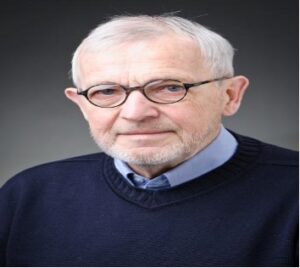 Dr. Halzen is the principal investigator of IceCube, Hilldale and Gregory Breit Professor at UW–Madison, and a theoretician studying problems that span the particle physics, astrophysics, and cosmology communities. In 1987, Prof. Halzen started working on the AMANDA experiment, a first-generation neutrino telescope at the South Pole that represented a proof of concept for the IceCube Neutrino Observatory. Prof. Halzen also serves on advisory committees for the SNO, Telescope Array, Auger upgrade experiments, the Max Planck Institutes in Heidelberg and Munich, the ICRR of the University of Tokyo, the US Particle Physics Prioritization Panel, and the ApPEC particle astrophysics advisory panel in Europe
Dr. Halzen is the principal investigator of IceCube, Hilldale and Gregory Breit Professor at UW–Madison, and a theoretician studying problems that span the particle physics, astrophysics, and cosmology communities. In 1987, Prof. Halzen started working on the AMANDA experiment, a first-generation neutrino telescope at the South Pole that represented a proof of concept for the IceCube Neutrino Observatory. Prof. Halzen also serves on advisory committees for the SNO, Telescope Array, Auger upgrade experiments, the Max Planck Institutes in Heidelberg and Munich, the ICRR of the University of Tokyo, the US Particle Physics Prioritization Panel, and the ApPEC particle astrophysics advisory panel in Europe
For more information, visit these links:
https://wipac.wisc.edu/people/faculty/francis-halzen
https://en.wikipedia.org/wiki/Francis_Halzen
https://scholar.google.com/citations?user=tTNPXRsAAAAJ&hl=en
https://inspirehep.net/authors/1006893
Email: francis.halzen@icecube.wisc.edu
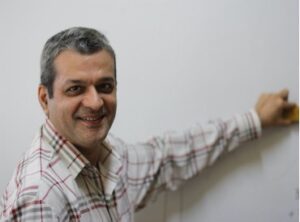 Dr. Dighe is a professor of Physics in the Department of Theoretical Physics at the Tata Institute of Fundamental Research (TIFR), Mumbai. His Research is in Particle Physics / High Energy Physics, which aims to understand the fundamental interactions of elementary particles. In particular, He works on Neutrinos: Oscillation phenomenology, Supernova neutrinos, Astroparticle physics; Collider Physics: Heavy quarks, Charge-Parity violation, and Physics beyond the Standard Model.
Dr. Dighe is a professor of Physics in the Department of Theoretical Physics at the Tata Institute of Fundamental Research (TIFR), Mumbai. His Research is in Particle Physics / High Energy Physics, which aims to understand the fundamental interactions of elementary particles. In particular, He works on Neutrinos: Oscillation phenomenology, Supernova neutrinos, Astroparticle physics; Collider Physics: Heavy quarks, Charge-Parity violation, and Physics beyond the Standard Model.
For more information, visit these links:
https://sites.google.com/site/amoldighetifr/
https://en.wikipedia.org/wiki/Amol_Dighe
https://inspirehep.net/authors/1011789
https://orcid.org/0000-0001-6639-0951
Email: amol@theory.tifr.res.in
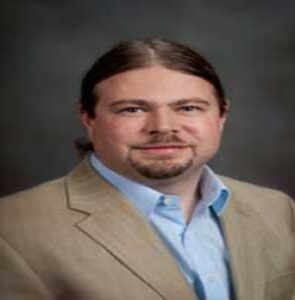 Dr. Huber is a professor and Director of the Center for Neutrino Physics, Virginia Tech, US. His research interest is in neutrino physics. He is known for his calculation of the reactor neutrino flux, and for his work in computing the sensitivity of neutrino oscillation experiments and applications of reactor neutrino detection. Professor Huber has studied the potential offered by several proposed new neutrino experiments to discover a non-zero mixing angle θ13 and to explore leptonic CP violation. His research focused on numerical methods to accurately and efficiently predict physics sensitivities of yet-to-be-built experiments. He works closely with the VT experimental neutrino science group and is a member of the Daya Bay Collaboration.
Dr. Huber is a professor and Director of the Center for Neutrino Physics, Virginia Tech, US. His research interest is in neutrino physics. He is known for his calculation of the reactor neutrino flux, and for his work in computing the sensitivity of neutrino oscillation experiments and applications of reactor neutrino detection. Professor Huber has studied the potential offered by several proposed new neutrino experiments to discover a non-zero mixing angle θ13 and to explore leptonic CP violation. His research focused on numerical methods to accurately and efficiently predict physics sensitivities of yet-to-be-built experiments. He works closely with the VT experimental neutrino science group and is a member of the Daya Bay Collaboration.
For more information, visit these links:
https://www.phys.vt.edu/About/people/Faculty/patrick-huber.html
https://en.wikipedia.org/wiki/Patrick_Huber
https://inspirehep.net/authors/1005379
https://scholar.google.com/citations?user=p_GBQXsAAAAJ&hl=en
Email: pahuber@vt.edu
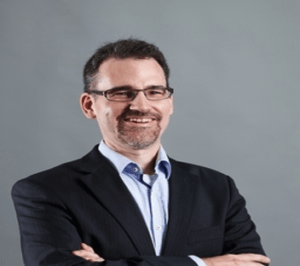 Dr. Rott is a professor at the University of Utah, US. His research focuses on Experimental astroparticle physics, particle physics, geophysics, and neutrinos physics. One of his primary research focuses is to look for signatures of dark matter with high-energy neutrinos. While most of his work is considered pure research and doesn’t have immediate applications, Prof. Rott did figure out a new way to use neutrino oscillations to study the Earth’s interior composition. He spent several months at the Earthquake Research Institute at the University of Tokyo to collaborate with researchers on the topic. He hopes this new method can help scientists better understand and predict earthquakes. Prof. Rott has been a member of the IceCube Neutrino Telescope since the start of the construction of the detector in 2005.
Dr. Rott is a professor at the University of Utah, US. His research focuses on Experimental astroparticle physics, particle physics, geophysics, and neutrinos physics. One of his primary research focuses is to look for signatures of dark matter with high-energy neutrinos. While most of his work is considered pure research and doesn’t have immediate applications, Prof. Rott did figure out a new way to use neutrino oscillations to study the Earth’s interior composition. He spent several months at the Earthquake Research Institute at the University of Tokyo to collaborate with researchers on the topic. He hopes this new method can help scientists better understand and predict earthquakes. Prof. Rott has been a member of the IceCube Neutrino Telescope since the start of the construction of the detector in 2005.
For more information, visit these links:
https://faculty.utah.edu/u6033273-CARSTEN_ROTT/hm/index.hml;jsessionid=9FF559E03F96BE52D65073FA3E8A356C
https://scholar.google.com/citations?user=qUKa_G4AAAAJ&hl=en
https://inspirehep.net/authors/1021147
https://orcid.org/0000-0002-6958-6033
Email: rott@physics.utah.edu
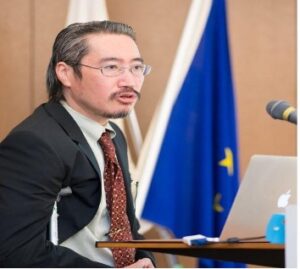 Dr. Tanaka is a professor at the Earthquake Research Institute, University of Tokyo, Japan.
Dr. Tanaka is a professor at the Earthquake Research Institute, University of Tokyo, Japan.
For more information, visit these links:
https://www.u-tokyo.ac.jp/focus/en/people/people000884.html
Email: ht@eri.u-tokyo.ac.jp
 Dr. Watanabe is an assistant professor at the Research Center for Neutrino Science, Tohoku University, Japan. Her research interest is in neutrino experiments and geoneutrinos. Prof. Watanabe and her collaborators have determined geo-neutrino flux, and were able to put stringent constraints on heat models of the earth through a detailed comparison between reactor neutrinos and geo neutrinos. While the first detection of the geo-neutrino by KamLAND was made in 2005, her result established a new interdisciplinary field, "neutrino earth science," which integrated neutrino physics and earth science. She will continue to be the leading scientist of "neutrino earth science" and presently promoting the separation of crust-origin neutrinos and mantle-origin neutrinos with a directionally sensitive neutrino-detection technology.
Dr. Watanabe is an assistant professor at the Research Center for Neutrino Science, Tohoku University, Japan. Her research interest is in neutrino experiments and geoneutrinos. Prof. Watanabe and her collaborators have determined geo-neutrino flux, and were able to put stringent constraints on heat models of the earth through a detailed comparison between reactor neutrinos and geo neutrinos. While the first detection of the geo-neutrino by KamLAND was made in 2005, her result established a new interdisciplinary field, "neutrino earth science," which integrated neutrino physics and earth science. She will continue to be the leading scientist of "neutrino earth science" and presently promoting the separation of crust-origin neutrinos and mantle-origin neutrinos with a directionally sensitive neutrino-detection technology.
For more information, visit these links:
https://tohoku.pure.elsevier.com/en/persons/hiroko-watanabe
https://scholar.google.co.jp/citations?user=izuJVVkAAAAJ&hl=en
https://orcid.org/0000-0002-2363-5637
Email: hiroko@awa.tohoku.ac.jp
